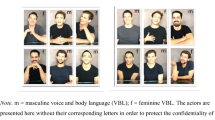Abstract
Female characters in many African folktales are often perceived as voiceless and peripheral, playing the role of passive advisors and nurturers in contrast to the physically stronger and more active male characters. Some African scholars have disagreed with this perception, asserting that the female characters are stronger than their male counterparts. In this article I examine the voice and agency of female protagonists in selected retellings of folktales. The aim is to determine the extent to which retellings contest or perpetuate conventions and assumptions about girls and women, and whether the increasing globalisation of these folktales is enhancing the agency of female protagonists and challenging patriarchal paradigms. My analysis suggests that retellings by black female authors and storytellers are more innovative and demonstrate more resistance to patriarchal structures than those by white authors which may have been influenced by the idea of a traditional European folk or fairy tale. Folktales have the potential to effect change in dominant attitudes, and to encourage critical awareness of embedded ideological patterns. To this end, female African storytellers show an ability to retell stories and mould characters in ways that contest the traditional gender roles found in many African folktales.
Similar content being viewed by others
Notes
This is one of the main themes of a semi-satirical novel by Cameroonian writer and anthropologist Francis Nyamnjoh, A Nose for Money (2006).
References
Attikpoé, Kodjo. (2019). History and Truth in Sub-Saharan African Children’s and Youth Literature. International Research in Children’s Literature, 12(2), 167–178.
Chesaina, Ciarunji. (1994). The Development of Women’s Studies in Kenya. Women’s Studies Quarterly, 22(3–4), 180–196.
Chesaina, Ciarunji. (2002). Feminism, Culture and Development in Africa. In Feminist Studies (pp. 48–63). African Women’s Development Fund. Accessed April 13, 2020 from https://www.awdflibrary.org/handle/123456789/786.
Chigidi, W.L. and Tembo, C. (n.d.). Traditional Oral Literature and the Socialisation of the Shona (Zimbabwe) Girl Child: An Agenda for Disempowerment. Accessed April 4, 2019 from https://hdl.handle.net/11408/830.
Florence, Namulundah. (2016). Female Role Models in Bukusu Folktales: Education at the Mother’s Hearth. Cogent Education 3(1). https://doi.org/10.1080/2331186X.2016.1185238.
Halliday, Michael. (1994). Introduction to Functional Grammar. 2nd edition. London: Edward Arnold.
Heale, Jay and Stewart, Diane. (2001). African Myths and Legends. Cape Town: Struik.
Inggs, Judith. (2009). Translating, Rewriting and Retelling South African Folktales: Mediation, Imposition or Appropriation? In Judith Inggs and Libby Meintjes (Eds.), Translation Studies in Africa (pp. 136–160). London: Continuum.
Inggs, Judith. (2019). Fairy Tales and Folk Tales. In Kelly Washbourne and Ben Van Wyke (Eds.), The Routledge Handbook of Literary Translation (pp. 146–158). London: Routledge.
Jenkins, Elwyn. (1993). Children of the Sun: Selected Writers and Themes in South African Children’s Literature. Johannesburg: Ravan Press.
Jenkins, Elwyn. (2006). National Character in South African English Children’s Literature. London: Routledge.
Kabaji, E.J. (2005). The Construction of Gender through the Narrative Process of the African Folktale: A Case Study of the Maragoli Folktale. PhD Thesis, University of South Africa. Accessed April 17, 2019 from https://hdl.handle.net/10500/1798.
Konate, D. and Laffon, M. (2002). L’épopée de Soundiata Keïta. Paris: Seuil.
Machin, David and Andrea Mayr. (2012). How to do Critical Discourse Analysis. London: Sage.
Masuku, Norma. (2005). Perceived Oppression of Women in Zulu Folklore: A Feminist Critique. PhD Thesis, University of South Africa.
Masuku, Norma. (2012). Songs and Folktales as a Conduit for Social Change in Zulu Culture: a Perspective on Umkhwekazi Namasi. Muziki: Journal for Music Research in Africa, 9(1), 90–98. https://doi.org/10.1080/18125980.2012.737107
Mekgwe, Pinki. (2006). Theorizing African Feminism(s): the ‘Colonial’ question. Quest: An African Journal of Philosophy, XX(1–2), 11–22.
Mhlophe, Gcina. (2003). Stories of Africa. Pietermaritzburg: University of Natal Press.
Msimang, C. T. (1986). Folktale Influence on the Zulu Novel. Pretoria: Acacia.
Nyamnjoh, Francis B. (2006). A Nose for Money. Nairobi, Kenya: East African Educational Publishers.
Olarinmoye, Adeyinka Wulemat. (2013). The Images of Women in Yoruba Folktales. International Journal of Humanities and Social Science, 3(4), 138–149.
Seboni, Ntloro. (2010). Role Played by Girl Characters in Sepedi Folktales. M.A. Dissertation, University of Limpopo. Accessed April 17, 2019 from https://hdl.handle.net/20.500.11892/88745.
Shuman, A. (1993). Gender and Genre. In S. T. Hollis, L. Pershing, and M. J. Young (Eds.), Feminist Theory and the Study of Folklore (pp. 71–87). Urbana: University of Illinois Press.
Sigenu, K.V. (2003). Ezakowethu—Folktales from Home. Cape Town: Khol Publishers.
Stephens, John, and McCallum, Robyn. 1998. Retelling Stories, Framing Culture. New York: Garland.
Stewart, D. (2006). Folktales from Africa. Cape Town: Struik.
Tracey, Hugh. (1967). The Lion on the Path and Other African Stories. London: Routledge and Kegan Paul.
Wa-Gachanja, M. (2002). Images of Women in Kenyan Oral Narratives. Fabula, 43(1/2), 75–84.
Zipes, Jack. (1983). The Trials and Tribulations of Little Red Riding Hood: Versions of the Tale in Sociocultural Context. London: Heinemann Educational.
Author information
Authors and Affiliations
Corresponding author
Additional information
Publisher's Note
Springer Nature remains neutral with regard to jurisdictional claims in published maps and institutional affiliations.
Judith Inggs is full professor and head of department in the Department of Translation and Interpreting Studies at the University of the Witwatersrand. Her research interests lie in the fields of both translation studies and children’s and young adult literature. She has previously published on South African children’s and young adult literature, the translation and adaptation of South African folktales, and on censorship and the translation of children’s literature in the former Soviet Union. One of her most recent publications is a monograph on post-apartheid South African young adult literature.
Rights and permissions
About this article
Cite this article
Inggs, J. Weak or Wily? Girls’ Voices in Tellings and Retellings of African Folktales for Children. Child Lit Educ 52, 342–356 (2021). https://doi.org/10.1007/s10583-020-09421-w
Published:
Issue Date:
DOI: https://doi.org/10.1007/s10583-020-09421-w




